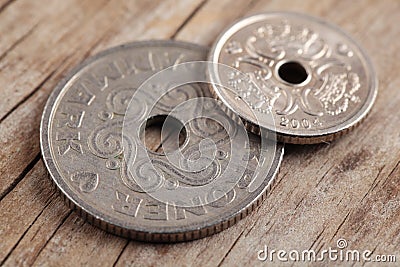Danish Coins
Danish coins NYT Crossword Clue Answers are listed below and every time we find a new solution for this clue we add it on the answers list. If you encounter two or more answers look at the most recent one i.e the last item on the answers box.
This crossword clue might have a different answer every time it appears on a new New York Times Crossword Puzzle. Duplicate clue solutions are not entered twice so each answer you see is unique or a synonym.
Up-to-Date Foreign Currency Values To make it easy for you to look up foreign coin values, we've curated this listing. This is a presentation of information traditionally found in CoinWorld's. All coins from Denmark, presented with pictures, descriptions and more useful information: metal, size, weight, date, mintage.
DANISH COINS Crossword Answer
- ORE

Danish Coins Pictures
contactDanish Coins From The 1800s
 page and leave us a message there.
page and leave us a message there.A “satanic coin” tied to a famous hoax in Denmark is coming to auction.

Anholt is a tiny island in the North Sea between Jutland and Sweden, but its infamous numismatic output is one for the ages.
Bruun Rasmussen’s Aug. 2 auction includes one of the copper pieces from a curious episode of history.
The pieces are evidence of a multinational prank orchestrated by a mild-mannered Danish art gallery clerk.
These pieces measure 32 millimeters in diameter and weigh 10.85 grams, making them slightly wider but slightly lighter than a copper-nickel clad Kennedy half dollar.
They feature a horned, cloven-hoofed devil with a trident and the legend CIVITAS DIABOLI (meaning country or citizenry of the devil) on the obverse and, on the reverse, 13 MAJ ANHOLT 1973 (13 March Anholt 1973).

These pieces most recently entered the public eye when in June 2018 a renovation at Bath Abbey in the United Kingdom revealed two examples beneath some 19th century stalls.
Much of what is known about the pieces and the hoax is thanks to a June 27, 2018, article by The Independent.
Source of the hoax
The hoax began in May 1973, at around the time of a full moon, when residents of Anholt began finding signs of satanic rituals in an isolated area they called “the desert.”

The “devil coins” started appearing soon after. For years, people kept finding them: in church crypts, behind statues, even on one occasion behind paintings at the police headquarters in Copenhagen.
As of that 2018 article, approximately 370 “devil coins” had been found, many in Denmark, but also in tourist destinations around Scandinavia.
The origins of the pieces, and the hoax, was revealed in 2013, when a Danish newspaper reported that it had all been a massive practical joke perpetrated by one Knud Langkow, an otherwise unremarkable telephone clerk at the National Gallery of Denmark, according to The Independent. He died in 2004 at the age of 73.
Their fanciful origin creates demand for the pieces today.
The offered piece (condition is unassigned by the auction house) has an estimate of 600 Danish krone (about $92 U.S.) but bidding had doubled that two weeks before the sale. Heaven only knows the final price for this quirky numismatic curiosity.
Consigned: 1973 copper “devil coin” from Anholt
Condition: Unassigned
Auction Location: Online
Auction Dates: Aug. 2, 2020
Details: Copper piece from Anholt reflects mysterious satanic cult hoax from the 1970s
Connect with Coin World:
Sign up for our free eNewsletter
Access our Dealer Directory
Like us on Facebook
Follow us on Twitter